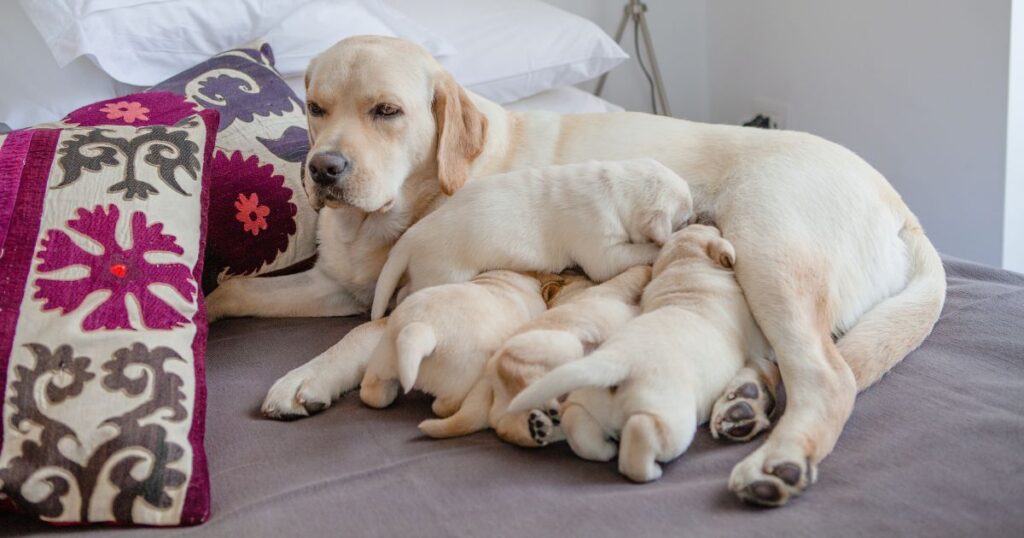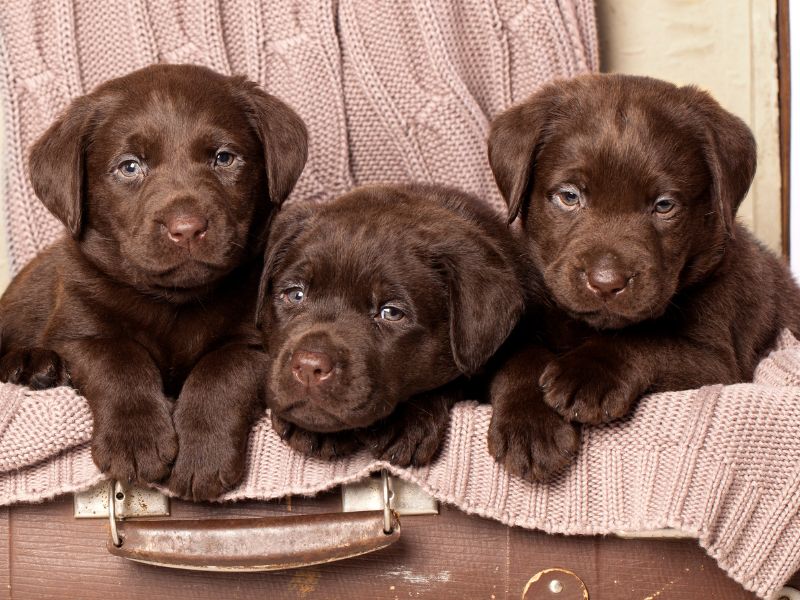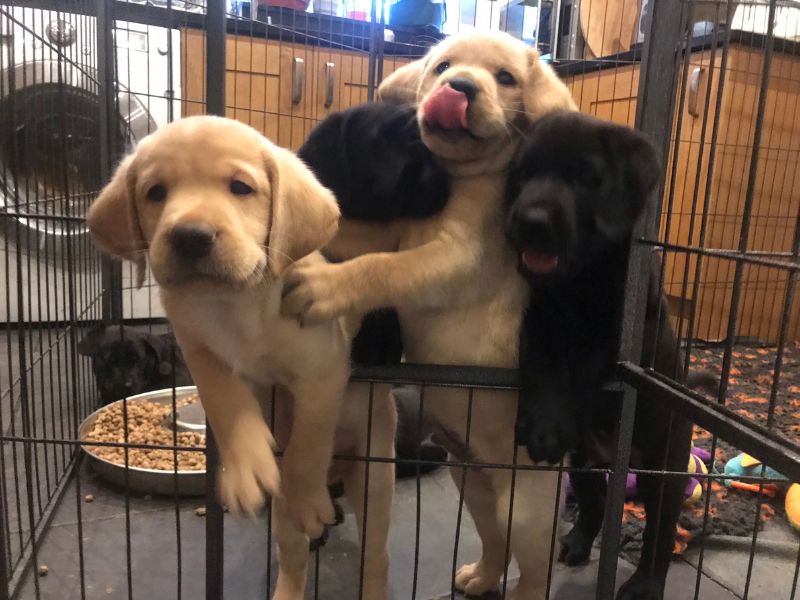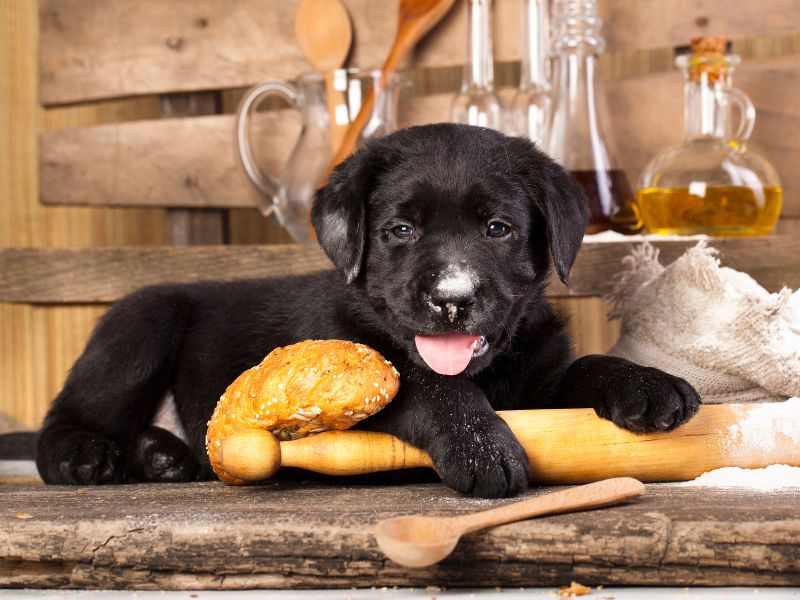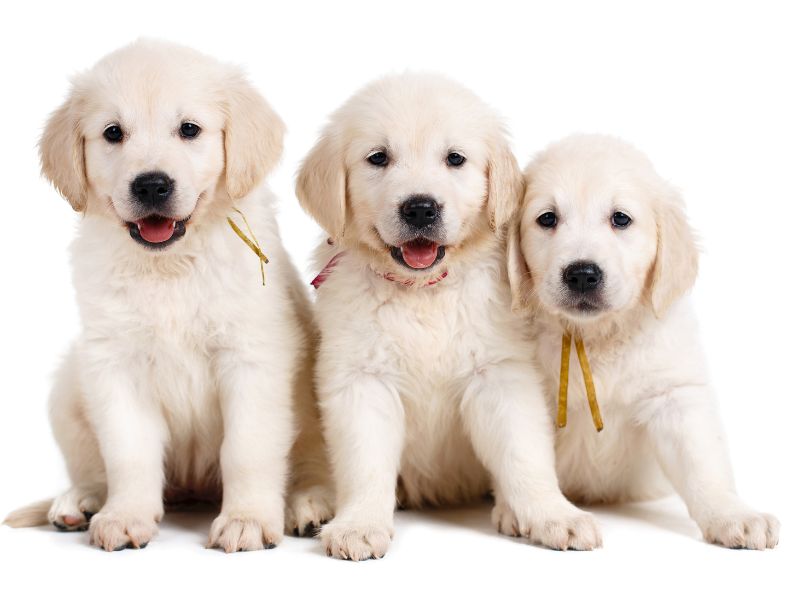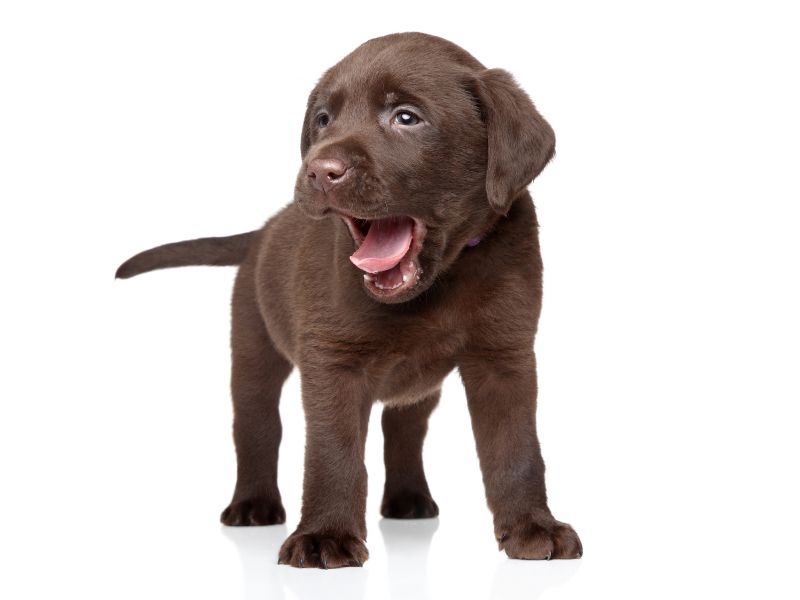Potential dog owners who are looking to bring a new Labrador puppy into their family should take the time to research and select a reputable breeder. Unfortunately, not all breeders have the best interests of their puppies at heart, and some may prioritize profit over the health and well-being of their animals. In this article, readers will learn how to spot a bad Labrador breeder and avoid potential disasters.
One of the most significant red flags when it comes to breeders is a lack of interest in the puppies they are creating. Bad breeders are often more concerned with making a quick profit than with the health and welfare of their animals. They may not carry out necessary health tests on the parent dogs or provide adequate care for the puppies, which can lead to long-term health problems and behavioral issues.
Another warning sign is a breeder who does not ask potential buyers questions about themselves and their living situation. A good breeder will want to ensure that their puppies are going to homes where they will receive the love and care they need to thrive. If a breeder does not seem interested in the buyer’s lifestyle or living situation, it may be a sign that they are more concerned with making a sale than with the well-being of their puppies.
Signs Of A Bad Dog Breeder
When looking for a Labrador breeder, it’s important to make sure you choose a responsible one. Unfortunately, there are many bad breeders out there who prioritize profit over the health and well-being of their puppies. Here are some signs that you’re dealing with a bad dog breeder:
The Breeder Doesn’t Ask You Questions About Yourself
A good breeder will want to make sure their puppies are going to a good home. They will ask you questions about your lifestyle, experience with dogs, and why you want a Labrador. If the breeder doesn’t seem interested in learning more about you, it’s a red flag.
The Breeder Hasn’t Carried Out Health Tests On The Parent Dogs
Responsible breeders will carry out health tests on their parent dogs to ensure they don’t pass on any genetic health problems to their puppies. If the breeder hasn’t done this, it’s a sign they’re not concerned about the health of their puppies.
The Breeder Doesn’t Have Evidence Of The Health Tests
A reputable breeder will have documentation of the health tests they’ve carried out on their parent dogs. If the breeder can’t provide this, it’s a sign they may be lying about having carried out the tests.
The Parent Dogs Have No Purpose Beyond Breeding
Good breeders will have a purpose for their parent dogs beyond breeding, such as showing them in conformation or using them for hunting. If the breeder doesn’t have a purpose for their dogs beyond breeding, it’s a sign they may be running a puppy mill.
The Breeder Has Numerous Litters Each Year
A good breeder will only have a few litters each year to ensure they can give each puppy the attention and care they need. If the breeder has numerous litters each year, it’s a sign they’re more concerned with making money than ensuring the health and well-being of their puppies.
The Breeder Also Sells Puppies To Pet Stores
Responsible breeders will never sell their puppies to pet stores, as they have no control over where the puppies end up. If the breeder also sells puppies to pet stores, it’s a sign they’re more concerned with making a profit than ensuring their puppies go to good homes.
The Breeder Has Many Dogs Of Different Breeds
A good breeder will specialize in one or two breeds and will have a limited number of dogs. If the breeder has many dogs of different breeds, it’s a sign they may be running a puppy mill.
The Breeder Won’t Let You See The Mother
A responsible breeder will always let you see the mother of the puppies. If the breeder won’t let you see the mother, it’s a sign they may be hiding something.
The Puppies Are Unclean
Good breeders will keep their puppies clean and well-groomed. If the puppies are dirty or have matted fur, it’s a sign the breeder isn’t providing them with proper care.
The Puppies Surroundings Are Inadequate For Their Needs
Responsible breeders will provide their puppies with a clean and safe environment that meets their needs. If the puppies are kept in dirty or cramped conditions, it’s a sign the breeder isn’t providing them with proper care.
The Breeder Won’t Meet You At Their Home
A reputable breeder will always let you visit their home to see where the puppies are raised. If the breeder won’t let you visit their home, it’s a sign they may be running a puppy mill.
The Puppies Have No Toys Or Soft Bedding
Good breeders will provide their puppies with toys and soft bedding to play with and sleep on. If the puppies don’t have these things, it’s a sign the breeder isn’t providing them with proper care.
The Puppies Are Very Underweight Or Overweight
Responsible breeders will ensure their puppies are at a healthy weight. If the puppies are very underweight or overweight, it’s a sign the breeder isn’t providing them with proper care.
The Breeder Won’t Share Details Of The Stud Dog
A good breeder will be happy to share information about the stud dog they used. If the breeder won’t share this information, it’s a sign they may be hiding something.
The Mother Doesn’t Know Her Name
Responsible breeders will ensure their parent dogs are well-trained and socialized. If the mother doesn’t know her name or doesn’t respond to commands, it’s a sign the breeder isn’t providing her with proper care.
The Breeder Won’t Share Their Vet’s Details
A reputable breeder will be happy to share the details of their vet and the care their puppies have received. If the breeder won’t share this information, it’s a sign they may be hiding something.
Get Pippa’s Training Tips!
If you’re considering buying a Labrador puppy, it’s important to find a reputable breeder. One way to spot a bad breeder is to look for certain red flags. Pippa’s training tips can help you identify these red flags and avoid getting a puppy from a bad breeder.
The Breeder Says The Dogs Are KC Registered But Won’t Produce Papers
KC registration papers are important for proving the dog’s pedigree and ensuring that it comes from a reputable breeder. If the breeder claims that the dogs are KC registered but won’t produce papers, it’s a red flag.
The Dogs Are Registered With Another Agency
If the breeder registers their dogs with an agency other than the Kennel Club, it’s a sign that they may not be reputable. The Kennel Club is the main registration agency for purebred dogs in the UK.
The Breeder Implies KC Registration Is An Indicator Of Health
KC registration is not an indicator of a dog’s health, temperament, or quality. A breeder who implies otherwise may not have the best interests of the dogs or the buyers in mind.
The Breeder Seems Lacking In Knowledge About Labradors
A good breeder should have a thorough understanding of the Labrador breed, including their temperament, health issues, and care requirements. If the breeder seems lacking in knowledge, it’s a red flag.
The Breeder Won’t Provide References From Previous Puppy Buyers
A reputable breeder should be happy to provide references from previous puppy buyers. If the breeder won’t provide references, it’s a sign that they may not have happy customers.
The Puppies Are Nervous Of Strangers
Well-socialized puppies should be friendly and curious around strangers. If the puppies seem nervous or fearful, it could be a sign that they haven’t been properly socialized.
The Breeder Lacks Knowledge Of The Dogs In The Pedigree
A good breeder should have a thorough understanding of the dogs in the pedigree, including their health history and temperament. If the breeder seems lacking in knowledge, it’s a red flag.
The Breeder Is Unfamiliar With Coefficient Of Inbreeding
A good breeder should be familiar with the coefficient of inbreeding and strive to breed dogs with a low coefficient. If the breeder is unfamiliar with this concept, it’s a red flag.
The Breeder Uses Shy Or Aggressive Dogs
Shy or aggressive dogs should not be bred, as these traits can be passed on to their offspring. If the breeder uses shy or aggressive dogs for breeding, it’s a red flag.
The Breeder Chose A Stud Dog Based On Convenience Only
A good breeder should carefully choose a stud dog based on their health, temperament, and other qualities. If the breeder chose a stud dog based on convenience or availability, it’s a red flag.
The Puppies Are Sold On A First Come First Served Basis
A reputable breeder will carefully screen potential buyers and choose the best home for each puppy. If the breeder sells puppies on a first come first served basis, it’s a red flag.
The Breeder Has No Older Dogs On Site
A good breeder should have older dogs on site to show that they are committed to their dogs and their breeding program. If the breeder has no older dogs on site, it’s a red flag.
The Breeder Won’t Show You The Rest Of The Litter
A reputable breeder will allow potential buyers to see the entire litter, not just the puppy they are interested in. If the breeder won’t show you the rest of the litter, it’s a red flag.
The Breeder Won’t Show You Where The Puppies’ Live
A reputable breeder will allow potential buyers to see where the puppies live and meet the mother dog. If the breeder won’t show you where the puppies live, it’s a red flag.
The Breeder Won’t Hold A Puppy For You For A Day Or Two
A good breeder will be willing to hold a puppy for a day or two if you need time to make a decision. If the breeder won’t hold a puppy, it’s a red flag.
The Breeder Claim To Be An Agent Of The Actual Breeder
If the breeder claims to be an agent of the actual breeder, it’s a red flag. A reputable breeder should be willing to communicate directly with potential buyers.
The Breeder Does Not Have A Job Other Than Breeding
A good breeder should have other sources of income and should not rely solely on breeding dogs for a living. If the breeder does not have a job other than breeding, it’s a red flag.
Labrador Retrievers are one of the most popular dog breeds in the world, known for their friendly personalities and loyalty. If you are considering bringing a Labrador puppy into your home, it is essential to find a reputable breeder. Unfortunately, not all breeders have the best interests of their puppies at heart. In this article, you will learn how to spot a bad Labrador breeder and avoid potential problems down the road.
One of the first things to look for when evaluating a breeder is their level of experience and knowledge. A good breeder should be able to provide you with detailed information about the breed, including its history, temperament, and health issues. They should also be able to answer any questions you have about the puppies they are selling. If a breeder seems uninterested or uninformed, it may be a red flag.
Another important consideration is the health of the puppies and their parents. A reputable breeder will perform health checks on their breeding stock to ensure that they are free from genetic diseases. They will also provide you with documentation of these tests. If a breeder cannot provide you with health records or seems hesitant to discuss the health of their dogs, it may be a sign that they are not a trustworthy source for a new puppy.
The Breeder Is Feeding Low Quality Or Inappropriate Dog Food
A responsible dog breeder will ensure that their puppies are fed with high-quality, nutritious food that is appropriate for their age and breed. However, a bad breeder may cut corners and feed low-quality or inappropriate dog food to save money. This can have adverse effects on the health and development of the puppies.
Puppies require a balanced diet that is rich in protein, vitamins, and minerals for proper growth and development. Feeding them low-quality food can result in malnutrition, stunted growth, and a weak immune system. In addition, inappropriate food can cause digestive problems, allergies, and other health issues.
A good breeder will provide you with information about the type of food the puppy has been eating, including the brand and ingredients. They may also provide you with a feeding schedule and recommendations for future feeding. If the breeder cannot provide this information or is feeding the puppies with subpar food, it may be a warning sign that they are not a reputable breeder.
To ensure that your puppy receives the best possible start in life, it is essential to choose a breeder who prioritizes the health and well-being of their puppies. This includes feeding them with high-quality, nutritious food that is appropriate for their age and breed.
The Breeder Does Not Socialise The Puppies
A reputable Labrador breeder understands the importance of early socialisation. Puppies start functioning and interacting at three weeks, and this heralds the start of the crucial socialisation period. During this time, puppies learn how to interact with other dogs and humans. If the breeder does not socialise the puppies, they may develop behavioural problems later in life.
A good breeder will ensure that the puppies are exposed to different stimuli, such as different sounds, smells, and textures. They may also introduce the puppies to different people, including children, men, and women. This will help the puppies become well-adjusted and confident adults.
It is important to note that socialisation is not just about exposing the puppies to different stimuli. The breeder must also provide a safe and nurturing environment for the puppies. This includes providing them with adequate food, water, and shelter. The puppies must also receive proper veterinary care, including vaccinations and deworming.
In summary, if the breeder does not socialise the puppies, it is a red flag. A reputable breeder will understand the importance of early socialisation and will take the necessary steps to ensure that the puppies are well-adjusted and confident adults.
The Breeder Does Not Offer After Care
When looking for a good Labrador breeder, it’s important to consider the after-care that they offer. A responsible breeder will provide support and guidance to new owners throughout the puppy’s life. This can include advice on training, nutrition, and health concerns.
If a breeder does not offer after-care, it could be a red flag that they are more interested in making a quick sale than ensuring the well-being of their puppies. It’s important to ask the breeder about their policies regarding after-care and what kind of support they offer to new owners.
Some breeders may offer a limited guarantee or warranty for their puppies, which can be helpful in case of any health issues that arise. However, it’s important to read the fine print and understand the terms of the guarantee before making a purchase.
In addition to after-care, a good breeder will also be available to answer any questions or concerns that new owners may have. They should be willing to provide references and allow potential buyers to visit their facility and meet the puppies and parents.
Overall, a breeder who does not offer after-care may not have the best interests of their puppies at heart. It’s important to find a breeder who is committed to the well-being of their puppies and who will provide support and guidance throughout their lives.
Dog Breeders To Avoid Won’t Ask You To Stay In Touch
A reputable dog breeder will always keep in touch with the new owners of their puppies. They will want to know how the puppy is doing and if there are any issues that need to be addressed. They will also be available to answer any questions that the new owner may have.
On the other hand, a bad dog breeder will not care about what happens to the puppy once it leaves their care. They will not ask the new owner to stay in touch and will not be available to answer any questions. This is a clear sign that the breeder is only interested in making a profit and not in the welfare of the puppies they produce.
It is important to note that a breeder who does not ask the new owner to stay in touch may also be hiding something. They may not want to hear about any health or behavioral issues that the puppy may have developed. This is why it is important to choose a breeder who is open and transparent about the health and temperament of their breeding stock.
In summary, a reputable dog breeder will always ask the new owner to stay in touch, while a bad dog breeder will not. It is important to choose a breeder who is open and transparent about the health and temperament of their breeding stock and who cares about the welfare of the puppies they produce.

